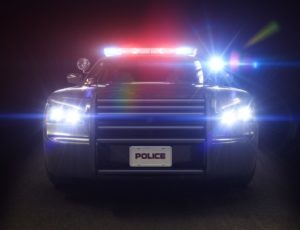April is 9-1-1 Education Month, and so to participate in this month’s efforts to educate our nation’s youth and adults about the importance of 9-1-1 service, and what to do in an emergency, we here at KOVA have assembled a list of tips to share with our readers about what to do when calling 9-1-1.
We hope that this list will not only serve as a refresher course for you, our readers, yourselves, but that you will also share it with your own friends and families, to spread the word about how best to help 9-1-1 help you.
Know your cell well
- The current 9-1-1 system is designed for voice communications only.
- Texting 9-1-1 is not an option in most locales; you must dial 9-1-1 and speak with a call taker.
- Lock your keypad when you’re not using your phone, so 9-1-1 isn’t dialed by mistake. For the same reason, don’t put 9-1-1 on speed dial.
- Do not give old phones to children as toys. A wireless phone with no active service can still call 9-1-1.
- If you accidentally call 9-1-1, stay on the line and tell the receiver that you do not have an emergency.
9-1-1 is for emergency use only
- Call 9-1-1 for emergencies only.
- It is appropriate to call 9-1-1 when you need to save a life, stop a crime, or report a fire.
- 9-1-1 is the right number to call in an emergency when a prompt response is needed.
- If you’re not sure whether the situation is a true emergency, call 911 and based on the information you give the call taker, they will determine whether you emergency help or another department.

Know how to use 9-1-1 with the phone you own
- Before you need help in an emergency, be sure to understand how the type of phone you use affects your call to 9-1-1.
- Cell phones may not automatically tell 9-1-1 where you are.
- Know the capabilities of the device you are using (landline, cellular, VoIP) when calling 9-1-1.
Remain calm, be prepared
- Try to stay calm, listen carefully, give information and follow all instructions.
- In an emergency, seconds matter, so being knowledgeable and prepared can make all the difference.
- Knowing when to call and what to expect when you phone 9-1-1 can help reduce fear and feelings of helplessness in an emergency.
- The more you know about the situation when you call 9-1-1, the faster 9-1-1 can get you the help you need. They can provide you with step-by-step instructions based on the situation, for example, when a person needs CPR or first aid, or there's an extreme bleeding injury that needs a temporary solution.
- If you dial 9-1-1 for a non-emergency matter, you are tying up resources that could be needed in a real emergency.
- If, by chance, you, your child, or someone accidentally calls 9-1-1, do not hang up because the call center may think there was an emergency, and will have officials come check out what the situation is like. Instead, stay on the phone and explain to the call taker what happened to avoid any inconveniences.
- You can save a life! Follow all instructions the 9-1-1 call taker gives you, and don’t hang up until the call taker does.

How you can help save a life
- Gather as much information as you can, for example:
- a street address, or intersection, and what sort of building you are in, such as a house, apartment, office building, etc.
- recognizable landmarks, maybe the sounds you hear in your area, what it may smell like, the weather, anything can help.
- if you're trying to help a person, try to figure out their name, age, what their injuries are and the extent of them, and if they have any medical bracelets, or medical cards, with information about their medical conditions.
- if you were a witness to a crime, try to remember as much information as you can about the criminal, such as what they were wearing, their build, weight, height, skin color, any noticeable scarring or tattoos, what they sounded like, which direction they went in, what they were carrying, what car they went in, and anything else you can remember.
If you would like to participate in an activity supporting 9-1-1 Education Month, there are many ways to pitch in. You can contact your local public safety answering point to find out if they are hosting any official events that you could volunteer at or help spread the word about. You could also take it upon yourself to put together an event, whether on a large scale, such as a community event, or on a smaller scale, such as a school field trip.
Whatever you do to help, know that your efforts will be appreciated by the men and women who sacrifice so much to help keep us all safe.